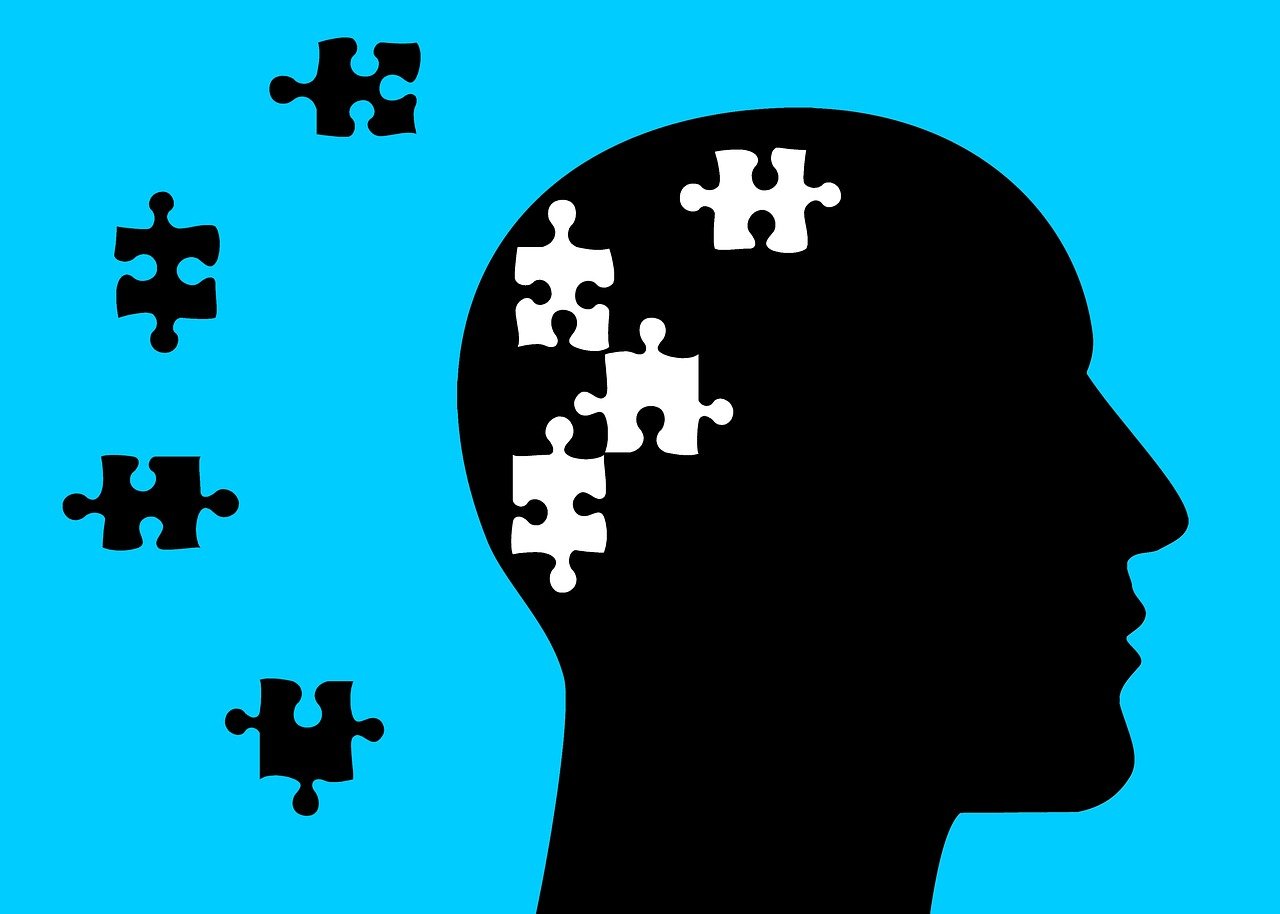Understanding Mental Illness
Understanding mental illness is crucial for addressing its impact on your life. Mental illness refers to a range of psychological disorders that affect a person’s emotional well-being and daily functioning.
Definition of Mental Illness
Mental illness is a broad term that encompasses various conditions characterized by disturbances in thoughts‚ emotions‚ behaviors‚ and overall mental functioning. These conditions may include but are not limited to depression‚ anxiety disorders‚ bipolar disorder‚ schizophrenia‚ and post-traumatic stress disorder (PTSD). It is important to note that mental illnesses are not a personal weakness or character flaw; they are legitimate health conditions that require proper understanding‚ support‚ and treatment.
Types of Mental Illnesses
There are many different types of mental illnesses‚ each with its own set of symptoms and characteristics. Some common types include⁚
- Depression⁚ persistent feelings of sadness‚ hopelessness‚ and loss of interest.
- Anxiety disorders⁚ excessive worrying‚ panic attacks‚ and fears.
- Bipolar disorder⁚ mood swings between highs and lows.
- Schizophrenia⁚ hallucinations‚ delusions‚ and disorganized thinking.
- PTSD⁚ flashbacks‚ nightmares‚ and severe anxiety following a traumatic event.
These are just a few examples‚ and it is important to consult a mental health professional for proper diagnosis and treatment.
Impact of Mental Illness on Daily Life
Mental illness can have a significant impact on various aspects of daily life. It can affect your ability to concentrate‚ make decisions‚ and perform everyday tasks. Relationships may become strained due to changes in mood‚ communication difficulties‚ or social withdrawal. Work or school performance may suffer‚ leading to academic or professional challenges. Additionally‚ mental illness can impact physical health‚ sleep patterns‚ and overall well-being. Understanding these challenges is the first step towards seeking help and implementing strategies for recovery.
Recognizing the Destructive Impact
Mental illness can have a profound and destructive impact on various aspects of your life‚ including relationships‚ work or school performance‚ and overall well-being.
Identifying Symptoms and Signs
Recognizing the symptoms and signs of mental illness is essential for understanding its impact on your life. Common symptoms may include persistent sadness‚ anxiety‚ irritability‚ changes in sleep or appetite‚ lack of motivation‚ difficulty concentrating‚ and withdrawal from activities. Physical symptoms such as headaches or stomachaches may also be present. It is important to pay attention to these signs and consult a mental health professional for a proper evaluation and diagnosis.
Acknowledging the Negative Effect on Relationships
Mental illness can have a negative effect on relationships‚ causing strain and difficulty in communication and emotional connection. It may lead to misunderstandings‚ conflicts‚ and social withdrawal. Loved ones may struggle to understand the changes in behavior or mood‚ resulting in frustration or resentment. Acknowledging the impact of mental illness on relationships is an important step towards seeking support‚ fostering understanding‚ and improving communication within your relationships.
Realizing the Impact on Work or School Performance
Mental illness can significantly impact work or school performance‚ making it challenging to meet responsibilities‚ concentrate‚ or perform at your best. It may lead to absenteeism‚ decreased productivity‚ missed deadlines‚ or difficulty in focusing and retaining information. The impact can result in additional stress‚ feelings of inadequacy‚ and potential consequences in academic or professional settings. Recognizing and addressing the impact of mental illness on work or school is crucial in seeking appropriate support and accommodations.
Seeking Professional Help
Seeking professional help is essential when dealing with the impact of mental illness on your life‚ providing guidance‚ support‚ and appropriate treatment options.
Therapy Options
There are various therapy options available to address mental illness and its impact on your life. Some common types of therapy include cognitive-behavioral therapy (CBT)‚ dialectical behavior therapy (DBT)‚ psychodynamic therapy‚ and family therapy. These therapies provide a safe and supportive environment to explore thoughts‚ emotions‚ and behaviors‚ and develop effective coping strategies. It is important to work with a mental health professional to determine the most suitable therapy approach for your specific needs.
Medication Management
Medication management is a viable option for managing mental illness. Psychiatrists or other qualified healthcare professionals can prescribe medications to help alleviate symptoms of mental illness and stabilize mood. It is essential to have regular check-ins with your healthcare provider to monitor the effectiveness and potential side effects of medications. Medication should always be used in conjunction with therapy and other self-care strategies to support overall mental well-being.
Importance of a Support System
Having a strong support system is vital when dealing with the impact of mental illness. Surrounding yourself with understanding and supportive individuals can provide emotional validation‚ encouragement‚ and practical assistance. This support system may include family‚ friends‚ or support groups. Sharing your experiences and challenges with others who have similar experiences can help reduce feelings of isolation and provide valuable insights. Building a support system can contribute to your overall well-being and aid in the recovery process.
Developing Coping Strategies
Developing effective coping strategies is essential for managing the impact of mental illness and promoting overall well-being.
Self-Help Techniques
Self-help techniques can be valuable in managing the impact of mental illness. These may include practicing mindfulness and relaxation exercises‚ engaging in regular physical activity‚ maintaining a balanced diet‚ and getting enough sleep. Journaling‚ engaging in hobbies‚ and seeking out support groups can also be beneficial. Developing self-help techniques allows you to actively participate in your own mental well-being and provides a sense of empowerment in your recovery journey.
Holistic Approach to Mental Well-being
Taking a holistic approach to mental well-being involves addressing various aspects of your life. This may include nurturing your physical health through exercise and nutrition‚ engaging in activities that bring joy and fulfillment‚ fostering positive relationships‚ and practicing self-care. Additionally‚ incorporating relaxation techniques‚ such as deep breathing or meditation‚ can help reduce stress and promote overall mental well-being. Adopting a holistic approach can enhance your ability to cope with the challenges of mental illness.
Resilience Building
Building resilience is crucial in navigating the challenges of mental illness. It involves strengthening your ability to adapt‚ bounce back‚ and thrive in the face of adversity. Strategies for building resilience include cultivating a support network‚ setting realistic goals‚ practicing positive self-talk‚ nurturing self-compassion‚ and developing problem-solving skills. By building resilience‚ you can enhance your ability to cope with the impact of mental illness and promote a more positive and resilient mindset.
Practicing Self-Care
Practicing self-care is crucial in managing the impact of mental illness and promoting overall well-being and resilience.
Relaxation Techniques
Engaging in relaxation techniques can help manage the impact of mental illness and promote a sense of calm. These techniques may include deep breathing exercises‚ progressive muscle relaxation‚ guided imagery‚ or mindfulness meditation. By incorporating these techniques into your routine‚ you can reduce stress and anxiety‚ improve sleep quality‚ and enhance overall well-being. Finding what works best for you and practicing regularly can provide valuable relief and support in managing mental health challenges.
Stress Reduction Methods
Implementing stress reduction methods can be beneficial in managing the impact of mental illness. These methods may include identifying and addressing sources of stress‚ practicing time management techniques‚ setting boundaries‚ and incorporating healthy coping mechanisms. Engaging in activities such as exercise‚ hobbies‚ and relaxation techniques can also effectively reduce stress levels. By actively managing stress‚ you can enhance your ability to cope with the challenges of mental illness and promote overall well-being.
Lifestyle Adjustments for Mental Health
Making certain lifestyle adjustments can have a positive impact on mental health. These adjustments may include maintaining a regular sleep schedule‚ engaging in regular physical activity‚ eating a balanced diet‚ and avoiding substance abuse. Creating a structured routine‚ setting realistic goals‚ and practicing good self-care habits are also important. By prioritizing a mentally healthy lifestyle‚ you can better manage the impact of mental illness and promote overall emotional well-being.
Cultivating a Positive Mindset
Cultivating a positive mindset is crucial in overcoming the challenges of mental illness and promoting overall resilience and well-being.
Challenging Negative Thoughts
Challenging negative thoughts is an important step in cultivating a positive mindset. It involves identifying and questioning negative or self-critical thoughts‚ replacing them with more realistic and positive ones. Building self-awareness and practicing cognitive restructuring techniques can help reframe negative thinking patterns. Developing a more balanced and positive perspective can contribute to improved mental well-being and a healthier outlook on life.
Embracing Acceptance and Self-Compassion
Embracing acceptance and self-compassion is crucial in the journey of managing mental illness. It involves acknowledging and accepting your experiences‚ limitations‚ and emotions without judgment. Practicing self-compassion allows you to extend kindness and understanding to yourself‚ fostering a sense of self-worth and resilience. By cultivating acceptance and self-compassion‚ you can navigate the challenges of mental illness with greater self-care and a more compassionate mindset.
Fostering a Supportive Environment
Fostering a supportive environment is essential for managing the impact of mental illness. Surrounding yourself with understanding and empathetic individuals who prioritize mental health can provide invaluable support and encouragement. Creating open lines of communication‚ setting boundaries‚ and seeking out support groups or therapy can contribute to a more supportive environment. By fostering a supportive network‚ you can feel validated‚ understood‚ and encouraged in your journey of managing mental illness.
Raising Awareness and Encouraging Caution
Raising awareness about mental illness and encouraging caution regarding its impact is crucial for promoting understanding and support.
Understanding Psychic Reading Scams and Fraudulent Practices
It is important to be aware of psychic reading scams and fraudulent practices that prey upon vulnerable individuals. These deceptive tactics often involve manipulation‚ trickery‚ and false promises. These so-called psychics may exploit your trust and financial vulnerability. Being skeptical and cautious when approached by individuals offering psychic services can help protect you from being deceived or ripped off. Seek authentic‚ legitimate mental health support from reputable professionals instead.
Recognizing Deceptive Tactics of Con Artists and Charlatans
Con artists and charlatans often employ deceptive tactics to exploit vulnerable individuals struggling with mental illness. These tactics may include false claims‚ high-pressure sales techniques‚ and cold reading strategies to make it seem like they possess special abilities. It is important to be aware of these tactics and maintain a healthy skepticism. Always research and verify the credentials of individuals offering services related to mental health to avoid being deceived or exploited.
Protecting Oneself from Being Exploited or Ripped Off
To protect yourself from being exploited or ripped off‚ it is crucial to exercise caution and awareness. Research the credentials and reputation of individuals or services offering mental health assistance. Be wary of high-pressure sales tactics‚ exorbitant fees‚ and false promises. Seek recommendations from trusted sources‚ such as healthcare professionals or support groups. Remember to trust your instincts and prioritize your well-being. Taking these precautions can help safeguard against being deceived or financially exploited.
Seeking Legitimate Help
When dealing with the impact of mental illness‚ it is important to seek legitimate help from reputable and trustworthy professionals.
Differentiating between Authentic and Bogus Services
It is important to know how to differentiate between authentic and bogus services when seeking mental health support. Beware of services that make extravagant claims‚ request excessive upfront payments‚ or lack proper credentials. Look for licensed professionals‚ reputable clinics‚ or organizations with a track record of ethical practices. Research reviews‚ check qualifications‚ and ask for referrals to ensure you are receiving legitimate help for your mental health needs.
Finding Reputable and Trustworthy Professionals
When seeking help for mental illness‚ finding reputable and trustworthy professionals is essential. Look for licensed therapists‚ psychologists‚ or psychiatrists who specialize in your specific needs. Seek recommendations from healthcare providers‚ friends‚ or support groups‚ and research their qualifications‚ experience‚ and reputation. Consider their approach‚ availability‚ and compatibility with your preferences. Trust your instincts and schedule an initial consultation to assess their expertise and establish a trusting therapeutic relationship.
Ensuring Ethical and Transparent Practices
When seeking help for mental illness‚ it is important to ensure ethical and transparent practices. Look for professionals or organizations that prioritize clear communication‚ informed consent‚ and confidentiality. They should provide detailed information about their services‚ fees‚ and treatment plans. Be wary of red flags such as hidden costs‚ lack of transparency‚ or pressure to make immediate decisions. Prioritize your rights as a client and make sure your mental health support adheres to ethical and transparent standards.
Emphasizing Honesty and Integrity
Emphasizing honesty and integrity in mental health services is vital for establishing trust and providing ethical care.
Importance of Trust in the Recovery Process
Trust plays a vital role in the recovery process from mental illness. Establishing trust with mental health professionals creates a safe and supportive environment for open communication and collaboration. Trust allows for honest discussions‚ effective treatment planning‚ and shared decision-making. It also fosters a sense of security and confidence in the therapeutic relationship‚ enabling individuals to feel validated‚ heard‚ and actively involved in their own recovery journey.
Recognizing Genuine and Reliable Support
Recognizing genuine and reliable support is essential when navigating mental illness. Genuine support encompasses understanding‚ empathy‚ and validation for your experiences. Reliable support involves consistent presence‚ active listening‚ and a willingness to provide assistance when needed. Look for individuals or support systems that demonstrate these qualities and prioritize your well-being. By surrounding yourself with genuine and reliable support‚ you can feel more empowered and encouraged in your journey towards mental health and well-being.
Promoting Honest Communication in Mental Health Services
Promoting honest communication in mental health services is crucial for fostering a therapeutic and supportive environment. Open dialogue between mental health professionals and individuals allows for accurate assessment‚ shared decision-making‚ and collaborative treatment planning. It encourages the sharing of concerns‚ goals‚ and progress‚ enabling professionals to provide tailored support. Honest communication also helps build trust‚ strengthens the therapeutic relationship‚ and ensures that mental health services are effectively meeting the individual’s needs and promoting their overall well-being.
Conclusion
Seeking professional help‚ developing coping strategies‚ and fostering a positive mindset are key in managing the impact of mental illness and promoting overall well-being.
Encouraging Mental Health Awareness and Caution
It is important to encourage mental health awareness and caution in order to promote understanding‚ reduce stigma‚ and prevent exploitation or scam practices. By educating ourselves and others about mental health‚ we can create a more supportive and empathetic society. It is crucial to approach mental health services with caution‚ ensuring that we seek help from reputable professionals and protect ourselves from deceptive practices. Together‚ we can foster a culture of mental health awareness and caution.
Highlighting the Importance of Seeking Professional Help
Seeking professional help is crucial in effectively managing mental illness. Mental health professionals can provide expert guidance‚ support‚ and evidence-based treatment options tailored to your specific needs. They can offer a safe space to explore your experiences‚ learn coping strategies‚ and navigate the recovery journey. By emphasizing the importance of seeking professional help‚ we acknowledge that mental health conditions are treatable and that seeking support is a sign of strength and commitment to your well-being.
Emphasizing Self-Care and Positive Mindset in the Recovery Journey
Emphasizing self-care and cultivating a positive mindset are essential in the recovery journey from mental illness. Prioritizing self-care involves taking care of your physical‚ emotional‚ and mental well-being through healthy habits‚ relaxation techniques‚ and fostering supportive relationships. A positive mindset can help build resilience‚ challenge negative thoughts‚ and promote optimism. By emphasizing self-care and a positive mindset‚ individuals can navigate the challenges of mental illness with strength‚ positivity‚ and a focus on overall well-being.



